
Find information on how to make a Protected Disclosure under the external procedures in place in the HEA.
Inclusive Education Pathways for Students with Intellectual Disabilities at UCC
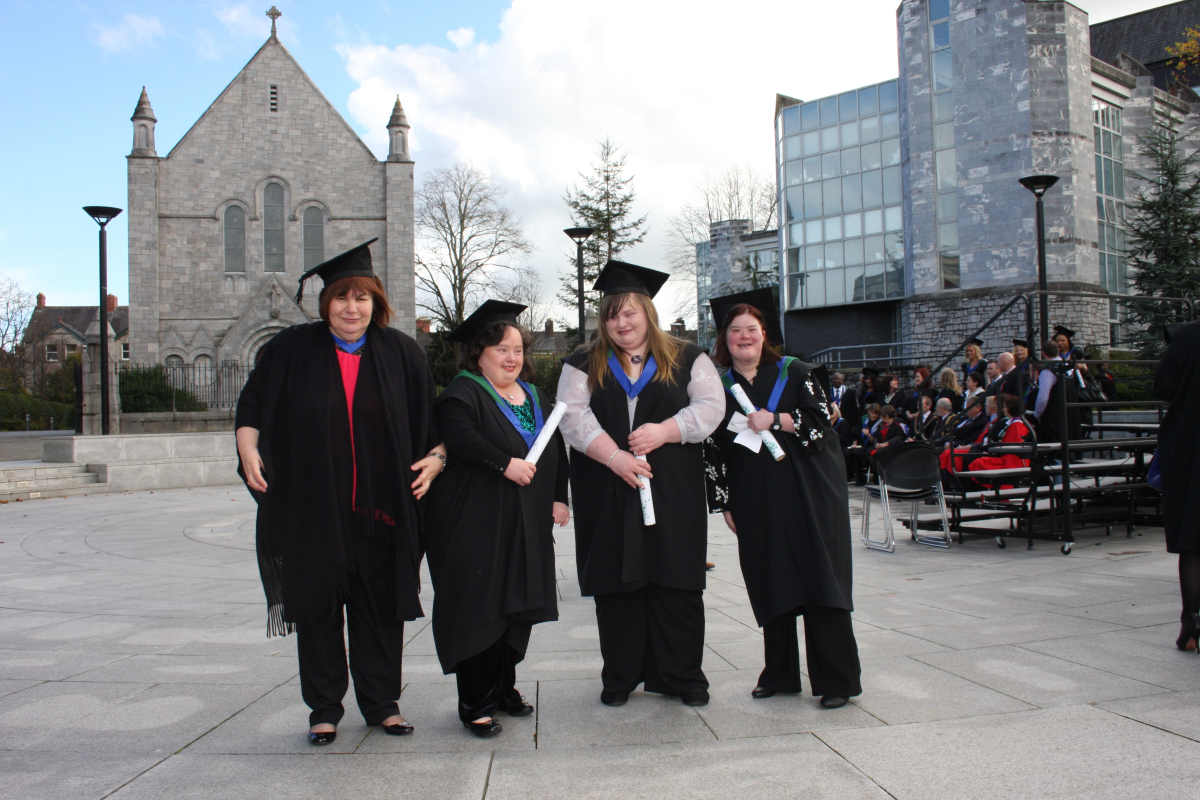
The Certificate in Contemporary Living (CCL) and the Disability Educators and Consultants Project (DEC) provide inclusive education pathways that challenge deficit-focused perceptions of people with intellectual disabilities (PWID). The CCL and DEC acknowledge the right of PWID to be heard and included in mainstream society and provide them with the education required to realise this right.

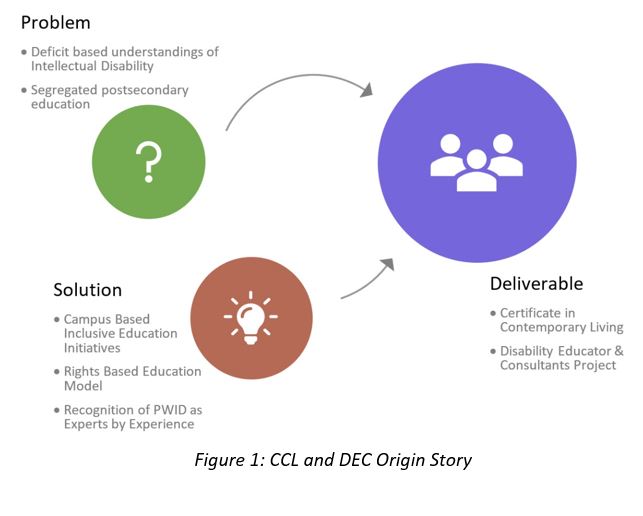
Certificate in Contemporary Living (CCL)
Established in 2009 as a pilot project supported by Brothers of Charity, Cope Foundation and Enable Ireland, the CCL exemplifies a mutually enriching synergy between UCC and civil society. The CCL is based in the School of Applied Social Studies and is part of the programme offering of the Centre for Adult and Continuing Education (ACE). Over 100 students have completed the two-year, campus-based programme and earned an NUI Certificate. The CCL was designed to meet the need for non-segregated, inclusive post-secondary education for PWID in the Cork and wider Munster area. Employing a rights-based model, the CCL supports PWID to acquire key transferable skills that scaffold their transition to further training and meaningful employment.
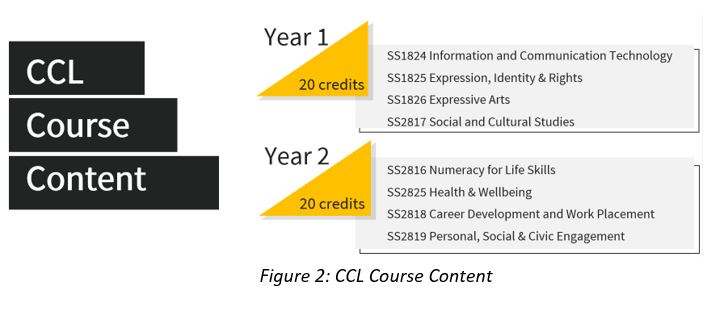
Disability Educators and Consultants Project (DEC)
The DEC project was developed in 2019 to train PWID as Disability Educators and Consultants. The DEC project recognises PWID as “Experts by Experience” and harnesses this expertise to develop user-informed educational input for students on professional programmes (e.g., health, clinical therapies, education and social care programmes, etc.) and to inform Inclusion and Accessibility Audits which support public and corporate bodies with their statutory obligations to provide accessible and inclusive environments.[1] DEC project participants include some current CCL students and some CCL alumni who undertake targeted skill development workshops in UCC. The DEC project is unique in the Irish context in that it recognises PWID as experts by experience and trains them to undertake valued roles as educators by experience. It represents a unique learning and teaching initiative in addition to providing a high value educational and employment progression pathway for PWID.
Impact achieved
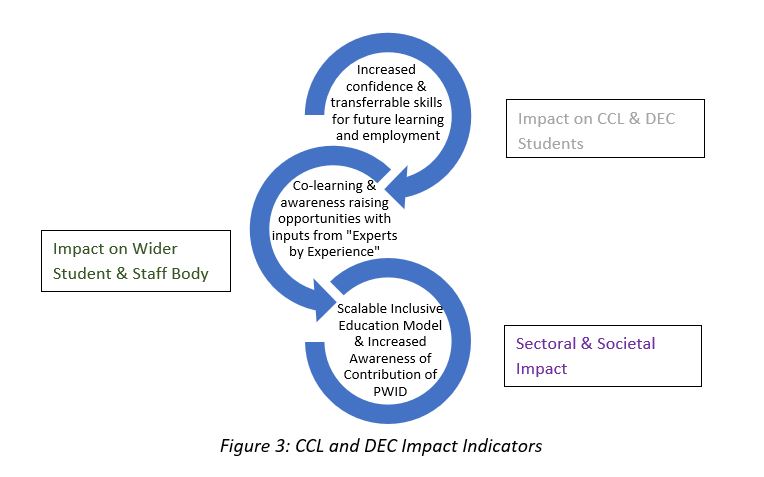
For PWID, participation in an inclusive, mainstream learning environment facilitates increased independence and self-esteem and development of transferable skills that scaffold transition to mainstream further education and employment. Delivery of learning inputs by “Experts by Experience” enhances professional training for a wide cohort of UCC students who gain critical insights into what it feels like to navigate education, social care and health settings as a PWID. The annual Accessibility and Inclusion Audit of the UCC campus undertaken by CCL and DEC students supports Buildings and Estates and Student Services to develop a more inclusive and disability-friendly campus. At a sectoral level, the CCL and DEC deliver inclusive education pathways for PWID which can be scaled up and out across the higher education sector and customised to local institutional contexts. At a societal level, the visibility of CCL and DEC students on campus and their participation in work internships across the university and in corporate and public organisations increase awareness of the abilities, potential and perspectives of PWID.
What we learned
Inclusive education initiatives such as the CCL and DEC enhance confidence and self-esteem and facilitate development of key transferable skills for independent living and meaningful social and economic engagement among PWID.
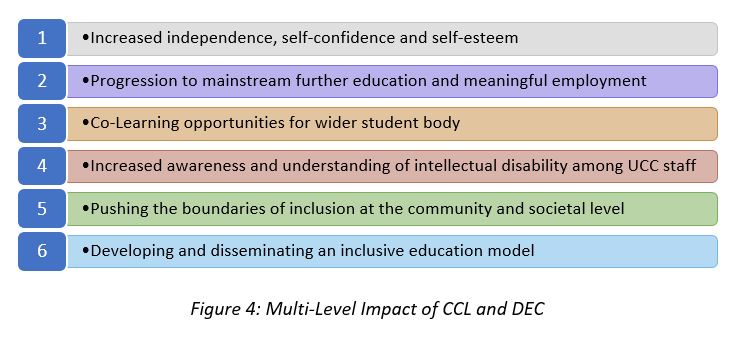
[1] These are laid out in the Disability Act 2005 and the Irish Human Rights and Equality Commission Act 2014 S42, which requires public bodies to assess their human rights and equality concerns in all their roles and functions and to set out in strategic planning, policy and reporting processes how they address human rights and equality issues for all protected groups. See also https://www.bitc.ie/newsroom/news/14-companies-come-together-with-government-to-promote-greater-inclusion-and-diversity-in-the-workplace/